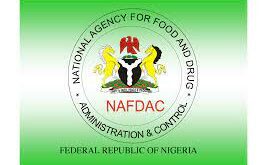In a recent move to regulate the Nigerian financial market and protect the interests of its citizens, the Central Bank of Nigeria (CBN) has issued new directives to banks and fintech companies regarding international money transfer services.
The new guidelines include a ban on banks and fintechs from offering international money transfer services and a significant increase in the application fee for International Money Transfer Operator (IMTO) licenses.
The CBN has also removed the cap on the exchange rate quoted by IMTOs in an effort to boost liquidity in the foreign exchange market.
This move is expected to attract more foreign investments and increase the amount of foreign currency available in the Nigerian market.
The new guidelines are aimed at ensuring a more stable and transparent financial market in Nigeria, as well as protecting the interests of Nigerian citizens who rely on international money transfer services.
The increase in the application fee for IMTO licenses is intended to ensure that only legitimate and financially sound companies are able to provide these services.
In addition to these new guidelines, the CBN has also issued new directives to banks on foreign exchange risks.
These directives are aimed at reducing the risks associated with foreign exchange transactions and ensuring that banks have adequate risk management systems in place.
The new regulations have been met with mixed reactions from the financial community, with some praising the move as a step towards a more stable and transparent financial market, while others have expressed concerns about the impact on the cost of international money transfer services for Nigerian citizens.
In conclusion, the new directives from the CBN are a significant development in the Nigerian financial market and are expected to have a major impact on the way international money transfer services are provided in the country.
It remains to be seen how these new regulations will affect the market in the long term, but for now, it is clear that the CBN is taking a more proactive approach to regulating the financial market and protecting the interests of Nigerian citizens.
Subscribe to the Advocate News letter and receive news updates daily in your inbox.
 Advocate.ng Latest news update on politics, entertainment, sport and more
Advocate.ng Latest news update on politics, entertainment, sport and more




